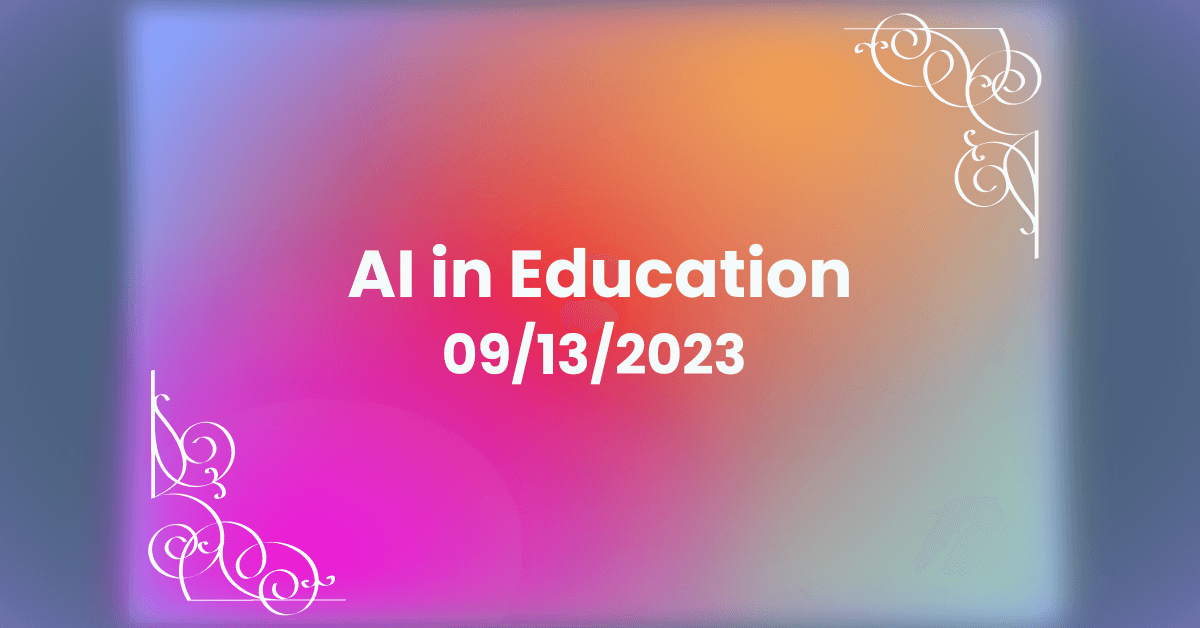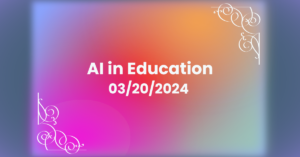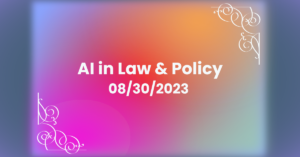The AI Guide for Teachers
OpenAI, the company behind the popular Large Language Model ChatGPT, has recently posted a guide for teachers who are interested in how to use AI in their classrooms. As a new school year begins in most parts of the United States, teachers are scrambling to find best practices around the usage of AI within their classrooms. It’s good to see OpenAI take an interest in helping teachers discover and create those best practices.
This guide provides some very interesting examples of how teachers are currently using ChatGPT in the real world, as well as providing examples to get teachers started with using ChatGPT.
How teachers are using ChatGPT
- Role playing challenging conversations: Dr. Helen Crompton from Old Dominion University uses ChatGPT to simulate personas for her education graduate students, helping them explore information in a conversational setting.
- Building quizzes, tests, and lesson plans from curriculum materials: Fran Bellas at Universidade da Coruña suggests using ChatGPT as an assistant for crafting educational materials, including quizzes, exams, and lesson plans.
- Reducing friction for non-English speakers: Dr. Anthony Kaziboni at the University of Johannesburg encourages students to use ChatGPT for translation assistance, improving English writing, and practicing conversation.
- Teaching students about critical thinking: Geetha Venugopal at the American International School in Chennai advises students to use ChatGPT responsibly, emphasizing critical thinking and cross-referencing information.
Example prompts to get you started
- Come up with lesson plans: In this prompt, educators can engage ChatGPT to help design customized lesson plans with various teaching techniques.
- Create effective explanations, examples, analogies: This prompt guides teachers in seeking clear and simple explanations, examples, and analogies for complex topics.
- Help students learn by teaching: In this scenario, ChatGPT acts as a student willing to explain a chosen topic and apply it creatively, receiving feedback from the teacher.
- Create an AI tutor: Educators can use ChatGPT as a tutor to help students understand concepts by providing explanations, examples, and asking guiding questions.
For a full version of these prompts, please check out the article.
Again, it’s refreshing to see OpenAI start a conversation about how to use their LLM within an educational setting. Hopefully this leads to the eventual creation of a system of best practices that teachers everywhere can use.
Further Reading:
- Reading, writing, and ChatGPT: High school English teachers adjust to the new realities of AI – Teachers are responding to the increasing use of AI like ChatGPT in education by promoting handwritten in-class assignments to reinforce basic writing skills while recognizing the importance of educating students about AI, its benefits, and limitations. – GeekWire
- UNESCO: Governments must quickly regulate Generative AI in schools – UNESCO calls on governments to swiftly regulate Generative AI in schools to ensure a human-centered approach, providing guidance on ethical use and data privacy standards, setting an age limit of 13 for AI tool use, and emphasizing inclusivity and equity in AI education, citing concerns over the lack of governance and rapid adoption of Generative AI in educational settings. – UNESCO
- Risks and Rewards as Higher Ed Invests in an AI Future – US colleges and universities are investing heavily in AI for education and research, but experts urge them to proceed with caution, emphasizing the need for ethical considerations, strategic planning, and the development of AI fluency, while leveraging AI for operational efficiency and maintaining a skeptical approach to avoid hype. – Inside Higher Ed
- Researchers Used AI to Rezone School Districts. Here’s What They Found – Researchers used AI to simulate new school attendance zones in large districts, finding that algorithm-based updates could reduce segregation between white and minority students by 14%, improve efficiency, and require some students to change schools. – EducationWeek







